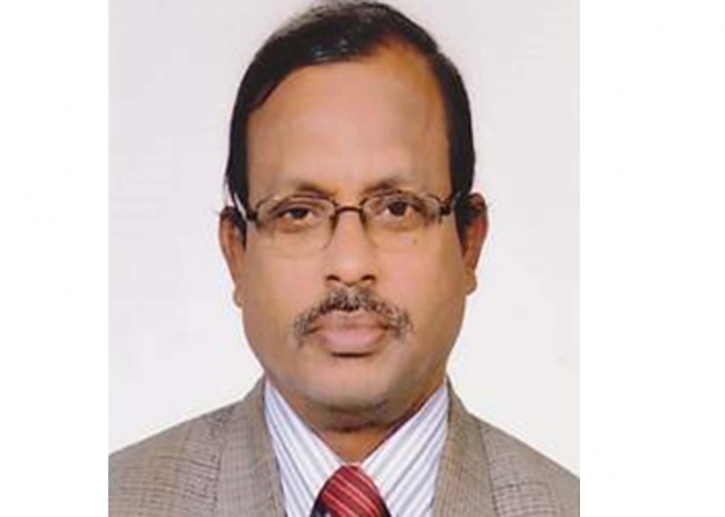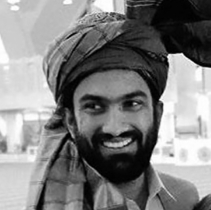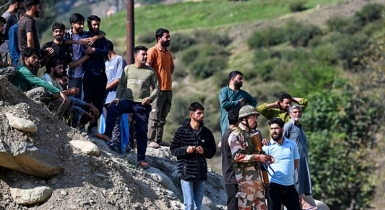
August is the month of mourning. Sheikh Hasina, the daughter of Bangabandhu, has transformed her own and the Bengali nation's grief into strength and is moving Bangladesh forward on the path of human rights and development. On August 15, 1975, the elected head of government, Father of the Nation Bangabandhu Sheikh Mujibur Rahman and his family, were killed by the followers of murderer Khondkar Mushtaq and Ziaur Rahman. When Bangabandhu's government was doing the work of rebuilding the war-torn independent country Bangladesh with full vigor and the benefits were coming from it, the conspirators killed Bangabandhu and his family with the aim of delaying the reconstruction, human rights and development of Bangladesh. Bangabandhu's two daughters, Sheikh Hasina and Sheikh Rehana, survived because they were abroad.
After August 15, 1975, Bangabandhu's two daughters were not safe even on foreign soil. Those whom she had seen alive while going abroad in 1975, when Bangabandhu's eldest daughter Sheikh Hasina returned home in 1981, none of them were alive. The merciless bullets of the assassins killed each of them! Bangmata Begum Fazilatunnessa Mujib, Bangabandhu's brother the brave freedom fighter Sheikh Nasser, Bangabandhu's brother-in-law the brave freedom fighter and minister Abdur Rob Serniabat, Bangabandhu's nephew the brave freedom fighter and Jubo League founder Sheikh Fazlul Haque Mani, Bangabandhu's eldest son the brave freedom fighter Captain Sheikh Kamal, Bangabandhu's other son Sheikh Jamal, Sheikh Kamal's newly wed bride Sultana Kamal, Sheikh Jamal's newly wed bride Rozi Jamal, Bangabandhu's youngest son Sheikh Russel, totally 18 people were killed by murderers on August 15, 1975.
Since August 15, 1975, human rights violations and development stalled on the way to the implementation of the Blue Plan for Pakistanization of Bangladesh. But after a long struggle, Bangabandhu's daughter Sheikh Hasina is moving Bangladesh forward in the path of human rights preservation and development by transforming grief into strength. In the present article, this topic is briefly discussed.
Bangladesh is witnessing a 'changing scenario' in terms of socio-economic context after 2006, especially after being freed from the misrule of BNP-Jamaat in the 2008 elections until 2023 under the leadership of Bangabandhu's daughter Sheikh Hasina.
Achieving phenomenal growth in the economic field, significant increase in per capita income (nominal), significant increase in per capita income (Purchasing Power Parity/PPP), significant increase in budget size, significant increase in GDP size, leading position of Bangladesh in the world of GDP; Increase people's quality of life; Incredible progress in electricity and energy sector. Amazing progress in education and agriculture; moving forward in building Digital Bangladesh. Unprecedented success in social security. Amazing progress in women's development. Significant improvements in the health care sector. Amazing advances in communication infrastructure. Significant progress has been made towards building a landless and homeless free state.
A total of 8 lakh 32 thousand 712 families i.e. 41 lakh 63 thousand 560 people have been rehabilitated by providing houses by the Awami League government from 1997 to 2023.
Besides, the number of working population in 2006 during the BNP-Jamaat coalition government was 6 crore 78 lakh people. Due to the health protection and improvement of living standards adopted by the Awami League government, the working population has increased almost 2 times to 123.33 million people in 2023. The unemployment rate was 6.77% in 2006 during the BNP-Jamaat coalition government. It decreased by half to 3.6% in 2023 under the Awami League government.
Annual foreign employment during the BNP-Jamaat coalition government in 2006 was 7 lakh 1 thousand 88 people. In 2023, during the Awami League government, it increased by 4 times to 11 lakh 35 thousand 877 people. During the BNP-Jamaat coalition government in 2006, the total employment in the country was 4 crore 3 lakh people. In 2023, during the tenure of the Awami League government, it has increased almost 2 times to 7 crore 73 lakh people. During the BNP-Jamaat coalition government in 2006, the number of industrial establishments launched under Bangladesh Export Processing Zone (Bepza) was 216. It increased to 452 in 2023 under the Awami League government.
According to the World Bank, Bangladesh is currently one of the fastest growing economies in the world. Bangladesh is supported by its demographic dividend, strong readymade garment (RMG) exports and stable macroeconomic conditions. But what is most essential is the continuation of democracy in Bangladesh, which is advancing the development of the country in a sustainable manner.
The democratically elected government of Bangabandhu was in power for only three-and-a-half years from 1972 to mid-August 1975 and had achieved astonishingly important successes in the reconstruction and development of democracy and the newly independent Bangladesh. The unprecedented success of the pro-liberation war government led by Bangabandhu's daughter Sheikh Hasina from 1996 to 2001 and from 2009 to date has made Bangladesh a 'role model for development' after the assassination of the elected head of government Bangabandhu and his family. In complete contrast to this, the regimes of sectarianism and backwardness of the civilian government led by the two successive military dictators General Ziaur Rahman, General Ershad and Khaleda Zia, who seized state power through the use of force in the anti-ideological undemocratic way of the Liberation War, were the regimes of human rights violations, undemocratic and "lost development". On the contrary, during the Awami League government under the leadership of Sheikh Hasina, remarkable progress is being observed in the preservation of human rights and socio-economic development.
Therefore, the absolute majority of the Awami League under the leadership of People's Leader Sheikh Hasina is essential in the next parliamentary elections. Only then development will continue with the continuity of democracy. Believing in Bangabandhu's ideals and the spirit of the liberation war, the conscious patriotic people of Bangladesh sincerely hope for the continuation of the development activities of the Awami League government under the leadership of Bangabandhu's daughter Sheikh Hasina.
Professor Dr. Arun Kumar Goswami, author of Institutionalization of Democracy in Bangladesh. Director, Center for South Asian Studies. Former Dean, Faculty of Social Sciences and Former Chairman, Department of Political Science, Jagannath University, Dhaka.





































